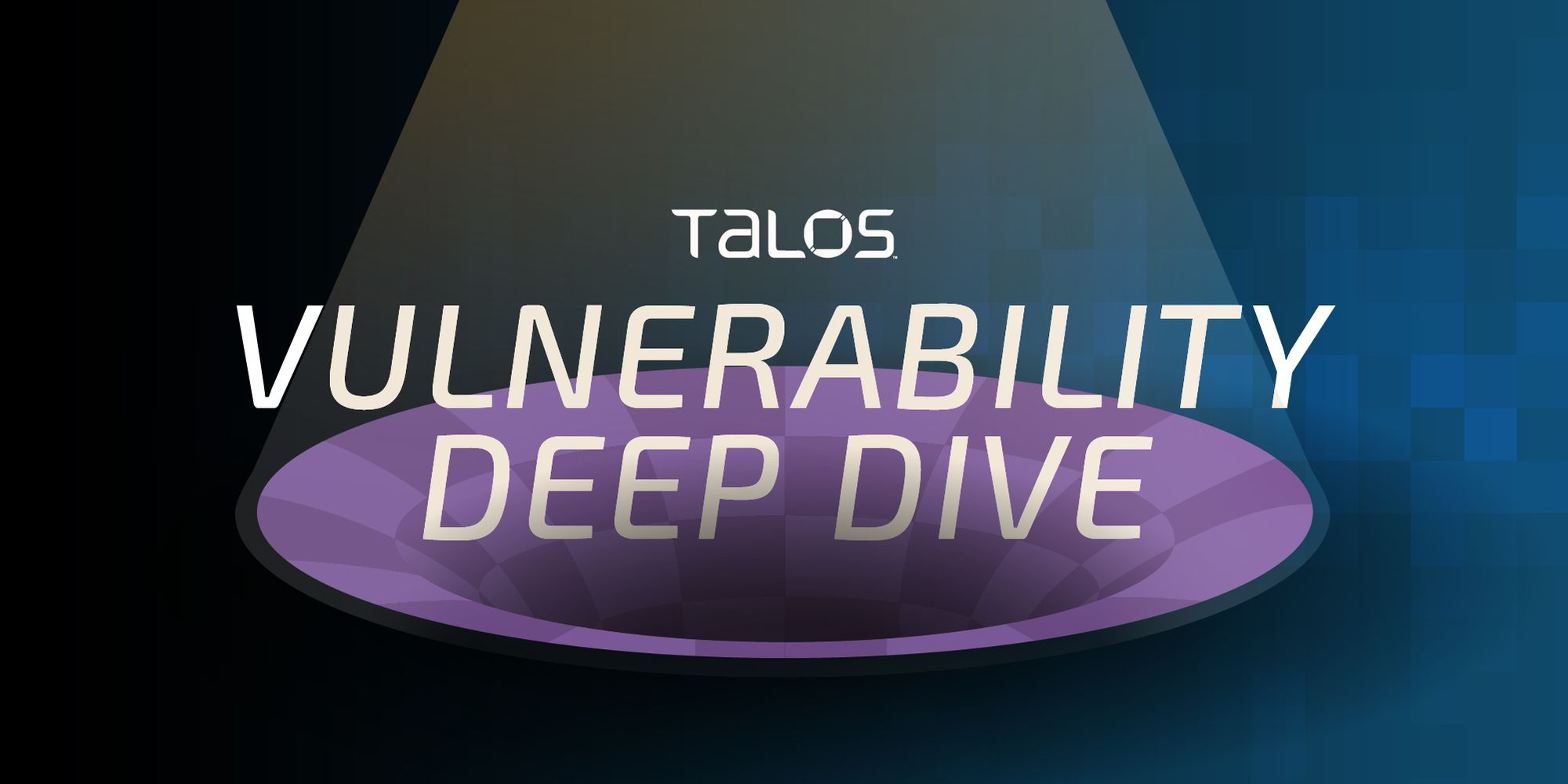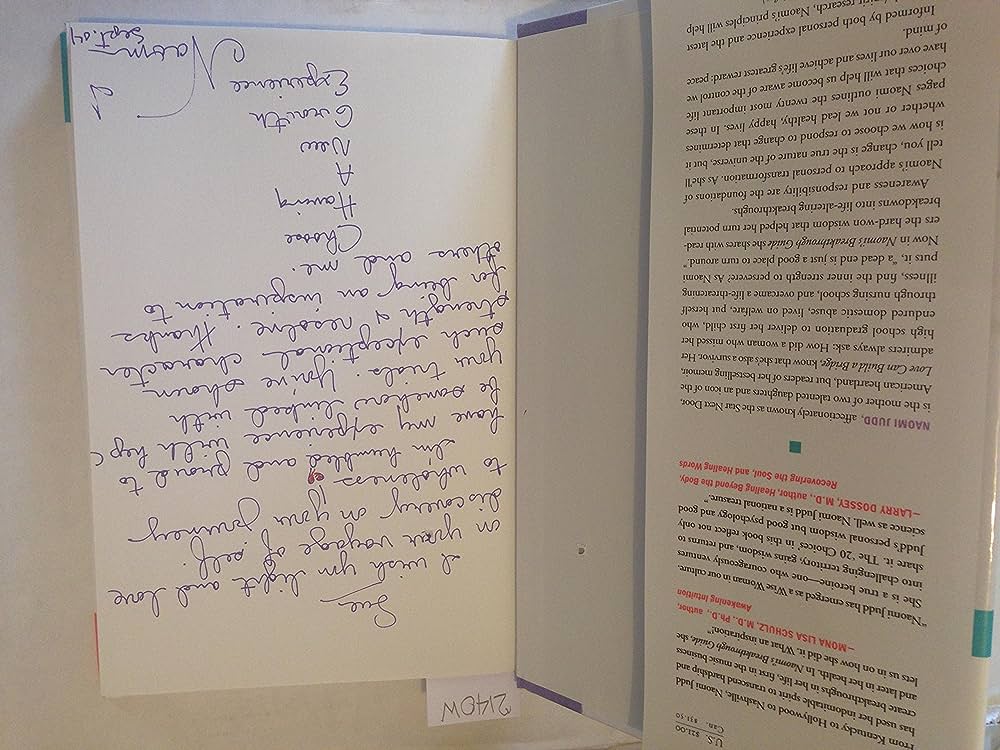Defi audits are essential for ensuring the security and reliability of decentralized finance platforms.
The Significance Of Auditing Defi
Auditing DeFi is crucial in ensuring the security and reliability of decentralized finance platforms. By conducting thorough Defi audits, potential vulnerabilities and risk factors can be identified and addressed, protecting user funds and maintaining trust within the ecosystem.
With the rapid rise of decentralized finance (DeFi), it has become increasingly important to address the potential risks and vulnerabilities in these protocols. DeFi audits play a crucial role in ensuring the security and reliability of the ecosystem. This section will explore why DeFi audits are crucial, the potential risks and vulnerabilities in DeFi protocols, and how audits protect users and their funds.
Why Defi Audits Are Crucial For The Security Of The Ecosystem:
- Ensuring smart contract security: DeFi protocols rely on smart contracts for their functionalities. Audits help identify and mitigate potential vulnerabilities in these contracts, reducing the risk of hacks and exploits.
- Trust and transparency: Audited DeFi projects inspire trust among users and investors. Independent audits provide a comprehensive assessment of the project’s security measures, giving users the confidence to engage with the platform.
- Compliance with regulations: Proper audits ensure that DeFi projects comply with regulatory standards. This is particularly important as governments and regulatory bodies are paying attention to the growing DeFi space and seeking ways to enhance consumer protection.
- Identifying potential attack vectors: Auditors meticulously analyze DeFi protocols to identify possible attack vectors. By doing so, they can offer recommendations to strengthen the security of the system, helping protect user funds from potential breaches.
The Potential Risks And Vulnerabilities In Defi Protocols:
- Smart contract bugs: Smart contracts are susceptible to coding errors, which can result in exploitability. Audits aim to identify and fix these bugs to prevent potential security breaches.
- Flash loan attacks: DeFi platforms often enable flash loans, which allow users to take out loans within a single transaction. However, these transactions can be exploited to manipulate the market, create price discrepancies, or drain liquidity from the protocols.
- Oracle manipulation: Oracles provide external data to DeFi protocols. If these oracles are compromised or manipulated, inaccurate information can be fed into the system, leading to financial losses for users.
- Governance exploits: DeFi projects that incorporate decentralized governance mechanisms are exposed to the risk of governance token exploits. Audits help identify vulnerabilities in these mechanisms, preventing potential attacks on the protocol’s governance.
How Audits Protect Users And Their Funds:
- Enhanced security: Audits ensure that DeFi protocols have robust security measures in place, reducing the likelihood of hacks, exploits, or funds being lost due to vulnerabilities.
- Early detection of weaknesses: Audits provide an in-depth examination of the protocol, enabling the identification of weaknesses before they can be exploited. This proactive approach helps protect users’ funds and prevents potential financial loss.
- Increased trust and confidence: Audited DeFi projects garner trust from the community, as users can rely on the findings and recommendations of independent auditors. This trust factor contributes to wider adoption and usage of the platform.
- Regulatory compliance: Audits help ensure that DeFi projects comply with regulatory requirements, adding an extra layer of protection for users and their funds.
- Ecosystem stability: By addressing risks and vulnerabilities, audits contribute to the overall stability of the DeFi ecosystem. This stability fosters long-term growth and sustainability while safeguarding user funds.
DeFi audits are of paramount importance for the security and success of the ecosystem. They mitigate risks, protect users’ funds, and enhance trust, making DeFi protocols more reliable and appealing to both users and investors. Through comprehensive audits, the potential risks and vulnerabilities can be identified, addressed, and mitigated, creating a safer environment for the decentralized financial revolution to thrive.
Common Vulnerabilities Found In Defi Audits
DeFi audits often uncover common vulnerabilities, ensuring the security and integrity of decentralized finance platforms. These audits play a crucial role in identifying and addressing potential risks, promoting trust and reliability within the DeFi ecosystem.
Defi Audits:
In the world of decentralized finance (DeFi), audits play a vital role in ensuring the security and reliability of smart contracts. However, no system is perfect, and even the most thorough audits can uncover vulnerabilities. Let’s explore some of the common vulnerabilities that can be found in DeFi audits, including smart contract bugs and vulnerabilities, economic vulnerabilities and exploits, and oracle manipulation and price feed issues.
Smart Contract Bugs And Vulnerabilities:
- Reentrancy vulnerability: This vulnerability allows malicious actors to repeatedly access a specific function within a smart contract before it completes execution, potentially leading to unauthorized transfers of funds.
- Integer overflow and underflow: Smart contracts often involve calculations that require handling large numbers. If not properly managed, these calculations can result in unintended consequences, such as overflowing or underflowing the integer datatype, leading to unexpected behavior.
- Logic errors: Programming errors can occur, resulting in faulty logic within a smart contract. These errors may allow attackers to perform unauthorized actions or manipulate contract behavior.
Economic Vulnerabilities And Exploits:
- Flash loan attacks: Flash loans allow users to borrow large sums of cryptocurrency within a single transaction. If not properly secured, flash loans can be exploited to manipulate markets or execute other malicious activities.
- Market manipulation: DeFi systems are susceptible to market manipulation, similar to traditional financial markets. Manipulative trading practices, such as frontrunning, can negatively impact the integrity of DeFi platforms.
- Governance vulnerabilities: DeFi protocols often rely on decentralized governance mechanisms. However, flaws in the governance model can lead to centralization of power and control, undermining the decentralized nature and security of the platform.
Oracle Manipulation And Price Feed Issues:
- Price oracle vulnerabilities: Price oracles are external data sources that provide price information to DeFi platforms. Manipulation or compromise of these oracles can lead to inaccurate price feeds, which, in turn, can be exploited by malicious actors to manipulate the value of assets.
- Manipulation of data sources: DeFi protocols rely on various data sources to make informed decisions. If these data sources are manipulated or provide inaccurate information, it can result in improper execution of transactions or other undesirable outcomes.
- Sybil attacks: Sybil attacks involve an attacker creating multiple fake identities or nodes within a system to gain control or manipulate the network. Sybil attacks can be used to manipulate or corrupt price feeds in DeFi platforms.
By understanding these common vulnerabilities found within DeFi audits, developers and auditors can better protect against potential risks. Through continuous improvements in security practices and thorough auditing processes, the DeFi ecosystem can continue to grow and mature, providing users with greater confidence in the safety of their assets.
Initial Assessment And Planning
Defi Audits offers an initial assessment and planning service to ensure the security and reliability of your decentralized finance applications. Our experts thoroughly analyze your protocols, conduct code reviews, and identify potential vulnerabilities to safeguard your platform’s operations. Trust us to provide a comprehensive strategy for optimizing your Defi project.
Identifying The Scope And Objectives Of The Audit:
When conducting a Defi audit, the initial assessment and planning stage is crucial for ensuring a comprehensive and effective audit process. This involves identifying the scope and objectives of the audit to provide a clear understanding of what needs to be assessed.
Here’s how to approach this stage:
- Analyze the project documentation and specifications to determine the areas that require auditing.
- Conduct discussions with the project team to gather insights and clarify objectives.
- Assess the risk factors associated with the project, including potential vulnerabilities, security concerns, and regulatory compliance.
- Define the scope of the audit by outlining the specific aspects and functionalities to be audited.
- Set clear objectives for the audit, such as identifying potential security vulnerabilities, assessing smart contract code quality, and ensuring compliance with best practices and standards.
By establishing the scope and objectives upfront, you can streamline the auditing process, focus on critical areas, and deliver an effective audit report.
Understanding The Protocol’S Architecture And Codebase:
To conduct a thorough Defi audit, it’s crucial to gain a deep understanding of the protocol’s architecture and codebase. This enables auditors to identify potential vulnerabilities and assess the overall security of the system. Here’s what you need to do:
- Review the protocol’s whitepaper, technical documentation, and code repository to understand its underlying architecture.
- Analyze the smart contracts and their implementation details to identify potential security risks and issues.
- Familiarize yourself with the protocol’s consensus mechanism, tokenomics, and economic model to ensure a holistic assessment.
- Conduct a code review to assess the quality, efficiency, and effectiveness of the codebase.
- Follow best practices and industry standards, such as the OpenZeppelin framework, to evaluate the security measures implemented in the codebase.
Through a comprehensive understanding of the protocol’s architecture and codebase, auditors can effectively identify potential vulnerabilities and provide recommendations for improvement.
Creating A Checklist For Potential Vulnerabilities:
A crucial aspect of the initial assessment and planning stage is creating a checklist for potential vulnerabilities. This checklist serves as a guide for auditors to ensure all critical areas are thoroughly examined. Here’s how to develop an effective checklist:
- Research and compile a list of common security vulnerabilities and threats specific to Defi protocols.
- Include elements such as smart contracts, token standards, transaction handling, and user authentication mechanisms in the checklist.
- Determine the list of best practices and compliance standards that should be adhered to within the Defi ecosystem.
- Consider potential attack vectors, including reentrancy attacks, phishing attempts, and front-running vulnerabilities.
- Break down the checklist into specific categories, such as authorization, data validation, access controls, and exception handling.
By creating a comprehensive checklist, auditors can systematically assess each component of the protocol, ensuring a thorough evaluation and reducing the risk of overlooking critical vulnerabilities.
The initial assessment and planning stage of a Defi audit lays the foundation for a successful and effective evaluation. By identifying the scope and objectives, understanding the protocol’s architecture and codebase, and creating a checklist for potential vulnerabilities, auditors can ensure a comprehensive assessment that addresses potential risks and provides valuable recommendations for improvement.
Code Review And Vulnerability Analysis
Get comprehensive code review and vulnerability analysis for Defi audits. Ensure the security and reliability of your smart contracts with our expert analysis and prevent potential vulnerabilities.
Understanding The Smart Contract Code And Its Implementation:
- Audit teams begin the process by thoroughly examining the smart contract code that powers the decentralized finance (DeFi) application. They aim to gain an in-depth understanding of the code’s structure and functionality, evaluating its clarity and effectiveness.
- Smart contract code can be complex, requiring auditors with expertise in programming languages such as Solidity. They dive into the codebase, analyzing variables, functions, and interactions between different components to comprehend the overall logic.
- During this stage, the auditors ensure that the code is well-commented and follows best practices to enhance readability and maintainability. Understanding the smart contract code establishes a solid foundation for the subsequent vulnerability analysis.
Identifying Potential Security Loopholes And Vulnerabilities:
- Once the auditors grasp the intricacies of the smart contract code, they shift their focus towards identifying potential security loopholes and vulnerabilities. This stage involves a meticulous examination of the code’s architecture and functionality to uncover potential weaknesses or flaws.
- Audit teams perform extensive testing, probe for input validation issues, and explore potential attack vectors that could expose the DeFi application to security risks.
- Through a combination of manual and automated techniques, auditors scrutinize the code for common vulnerabilities such as reentrancy attacks, integer overflows/underflows, or incorrect access control implementation.
- They analyze the code’s handling of user inputs, system states, and inter-contract communications to ensure that potential vulnerabilities are identified and addressed promptly.
Analyzing The Impact And Severity Of Each Vulnerability:
- The audit process extends beyond the identification of vulnerabilities. Auditors also assess the impact and severity of each vulnerability to quantify the risks associated with the DeFi application.
- By comprehensively evaluating vulnerabilities, auditors determine how they could potentially disrupt the application’s intended functionality or compromise user funds.
- Each identified vulnerability is assigned a severity level based on its potential impact. This classification helps prioritize remediation efforts, ensuring that critical vulnerabilities are addressed promptly to safeguard users.
- Auditors provide detailed reports outlining the impact and severity of each vulnerability, empowering project teams to make informed decisions and take appropriate measures to strengthen the security of their DeFi application.
Penetration Testing And Exploit Simulation
Penetration testing and exploit simulation are crucial for conducting Defi audits. These processes help identify vulnerabilities and simulate real-world attacks, ensuring the security and stability of decentralized finance platforms. Stay ahead of potential threats through comprehensive audits.
Simulating Real-World Attack Scenarios
Penetration testing and exploit simulation are crucial components of conducting a thorough DeFi audit. By simulating real-world attack scenarios, auditors can identify potential vulnerabilities and weaknesses in the system. This testing process helps ensure the overall security and robustness of the DeFi protocol.
Here are some key aspects to consider when conducting penetration tests and exploit simulations:
- Identifying potential attack vectors: Auditors analyze the DeFi protocol to identify potential entry points that could be exploited by malicious actors. This includes examining smart contracts, web interfaces, authentication mechanisms, and external integrations.
- Testing the system for vulnerabilities: Auditors attempt to exploit the identified attack vectors to assess the system’s vulnerabilities. This involves trying different techniques and methods to gain unauthorized access or manipulate the protocol.
- Assessing the effectiveness of security measures: The penetration testing and exploit simulation help auditors assess the effectiveness of the security measures implemented within the DeFi protocol. They evaluate if the system can effectively detect and prevent attacks, and if the security mechanisms can withstand malicious attempts.
- Evaluating response to attacks: Auditors examine how the system responds to attacks and attempts to mitigate the impact of those attacks. This includes evaluating the incident response processes, monitoring systems, and communication channels in place to address security incidents.
By conducting thorough penetration testing and exploit simulations, auditors can provide valuable insights into the security posture of a DeFi protocol and highlight any vulnerabilities that may need to be addressed. This proactive approach helps enhance the overall security and trustworthiness of the system, ultimately protecting user funds and fostering confidence in the DeFi ecosystem.

Credit: www.sentinelone.com
Example 1: Exploiting Flash Loan Vulnerability
Defi audits are crucial in uncovering vulnerabilities like exploiting the flash loan vulnerability in Example 1. Protecting against such risks is essential in the DeFi ecosystem.
Analyzing A Case Where A Flash Loan Was Exploited To Drain Funds
In the world of decentralized finance (DeFi), security audits play a crucial role in safeguarding users’ funds and ensuring the integrity of protocols. Unfortunately, vulnerabilities can still emerge, leading to potentially devastating consequences. Let’s examine an example where a flash loan vulnerability was exploited to drain funds from a protocol, highlighting the importance of thorough audits and continuous improvements.
- The vulnerability:
- An attacker discovered a vulnerability in a DeFi protocol that allowed them to execute a flash loan attack.
- Flash loans are a type of uncollateralized loan that utilizes the arbitrage opportunities available within the DeFi ecosystem.
- By taking advantage of this vulnerability, the attacker was able to borrow a substantial amount of funds, manipulate the protocol, and drain the funds.
- The impact:
- The flash loan attack resulted in a significant loss of funds from the protocol, putting the ecosystem at risk and potentially impacting users who had invested in it.
- This incident highlighted the potential vulnerabilities within DeFi platforms and the need for robust security measures, including audits.
- Lessons learned and improvements made:
- Following the attack, the protocol developers reviewed their security measures and conducted a thorough investigation to identify the vulnerability and its root cause.
- To prevent future exploits, the protocol implemented several improvements:
- Enhanced auditing practices: The protocol committed to conducting detailed security audits by reputable firms to identify any vulnerabilities before deployment.
- Code review and testing: The developers implemented thorough code review processes and rigorous testing protocols to eliminate any potential weaknesses.
- Continuous monitoring: The protocol established a system for continuous monitoring of its smart contracts to promptly detect and address any suspicious activities.
- Community involvement: The incident served as a wakeup call for the protocol’s community, leading to increased participation in identifying potential vulnerabilities and contributing to the overall security of the platform.
This case demonstrates the critical role of audits in DeFi protocols and the importance of constant vigilance regarding security vulnerabilities. By learning from such incidents, DeFi projects can strengthen their defenses and protect user funds more effectively, providing a safer and more robust ecosystem for all participants.
Example 2: Manipulating Oracles For Profit
“Defi Audits uncovers the shady practice of manipulating oracles for personal gain in Example 2. Examining the intricate details of these audits proves crucial for ensuring the integrity and security of decentralized finance platforms. “
Examining A Scenario Where Oracles Were Manipulated To Execute Profitable Transactions
In the world of decentralized finance (DeFi), oracles play a crucial role in providing external data to smart contracts. They act as intermediaries, fetching information from off-chain sources and relaying it back to the blockchain. However, as with any technology, vulnerabilities and risks can arise.
One such scenario involves the manipulation of oracles for profit, where malicious actors exploit the system to execute advantageous transactions and gain unfair advantages. Let’s delve into this example to better understand its implications and consequences.
Understanding The Implications And Consequences Of Oracle Manipulation:
- Attackers identify vulnerabilities in the oracle mechanism and exploit them to manipulate the data provided, thereby influencing smart contract outcomes.
- By manipulating oracles, attackers can manipulate prices, swap rates, or other crucial data points, ultimately leading to favorable trades and higher profits.
- Such attacks undermine the integrity and reliability of DeFi platforms, eroding trust within the ecosystem.
- Unfair gains made by manipulators negatively impact other participants in the market, leading to loss of funds and potential financial instability.
- The reputation of affected DeFi protocols can suffer, resulting in decreased adoption and confidence from users.
Highlighting The Measures Taken To Prevent Similar Attacks In The Future:
- Continuous audits and extensive security assessments are performed by experts to identify vulnerabilities in oracles and mitigate potential risks.
- Improvement and diversification of oracle sources can help prevent single points of failure and reduce the impact of data manipulation.
- The usage of multiple oracles and the implementation of consensus mechanisms can make it more difficult for attackers to manipulate the data provided.
- Smart contract developers and blockchain communities actively collaborate to enhance the security of oracles through peer reviews, bug bounty programs, and responsible disclosure of vulnerabilities.
- Growing awareness and education regarding oracle manipulation risks among DeFi users can contribute to a more vigilant and informed community.
By examining a scenario where oracles are manipulated for profit, we can grasp the severity of such attacks and their implications for the DeFi ecosystem. Efforts to prevent similar attacks have evolved alongside the growth of DeFi, with developers and communities actively working towards enhancing the security of oracles.
These measures not only protect users’ funds but also foster a more robust and trustworthy decentralized finance landscape.
Smart Contract Design And Implementation
Smart contracts play a crucial role in the design and implementation of Defi audits, ensuring transparency and security in decentralized finance protocols. With their automated and self-executing nature, smart contracts eliminate the need for intermediaries and provide trustless transactions for users.
As the backbone of decentralized finance (DeFi) platforms, smart contract design and implementation play a crucial role in ensuring the security and reliability of these applications. In this section, we will explore the key considerations and best practices that can help in creating secure and robust smart contracts.
Writing Secure And Robust Smart Contracts
When developing smart contracts, the following practices should be followed to ensure their security and resilience:
- Use standardized libraries and frameworks: Leveraging established libraries and frameworks allows developers to benefit from community vetted code, reducing the risk of vulnerabilities.
- Incorporate code audits: Conducting regular audits by reputable third-party firms helps identify potential vulnerabilities and security loopholes.
- Understand and mitigate common attack vectors: Awareness of common attack vectors such as reentrancy, arithmetic overflows/underflows, and timestamp manipulations is crucial in writing secure contracts.
- Implement access controls: Define access controls to restrict certain functionalities to authorized participants only, preventing unauthorized modifications.
- Enable contract upgradability: Design contracts in a way that allows for future upgrades or bug fixes while maintaining data continuity and user trust.
Implementing Best Practices For Contract Architecture And Code Structure
To ensure maintainability and readability of smart contracts, it is important to follow the best practices for contract architecture and code structure. Here are some key considerations:
- Modularization: Divide the contract into logical modules or components to enhance readability, reusability, and ease of maintenance.
- Use proper variable and function naming conventions: Employ descriptive and meaningful names for variables, functions, and modifiers, enhancing code readability and understanding.
- Limit contract complexity: Keeping contracts simple and avoiding unnecessary complexity reduces the likelihood of introducing bugs and makes them easier to review and understand.
- Implement code comments and documentation: Add comments and documentation to explain the functionality and purpose of critical code sections, making it easier for developers to comprehend and troubleshoot.
- Test-driven development: Develop tests in parallel with the contract code to ensure comprehensive coverage and proper functionality validation.
By adhering to these principles and guidelines in smart contract design and implementation, developers can significantly reduce the risk of vulnerabilities and enhance the overall security and reliability of their DeFi applications.
Test And Test Again
Defi audits play a crucial role in ensuring the security and reliability of decentralized finance protocols. With the “Test and Test Again” approach, developers can identify vulnerabilities, address potential risks, and enhance the overall security of their projects. Trustworthy audits are essential for building confidence among users and fostering the growth of the DeFi ecosystem.
The Importance Of Comprehensive Testing Before Deployment
When it comes to executing smart contracts on decentralized finance (DeFi) platforms, comprehensive testing is crucial before deployment. This step ensures that code is thoroughly evaluated and any potential vulnerabilities or bugs are identified and addressed. Without proper testing, the risk of potential security breaches and financial losses significantly increases.
Here are some reasons why comprehensive testing is of utmost importance:
- Identification of bugs and vulnerabilities: Testing allows developers to uncover any flaws in the smart contract code, such as logical errors or security vulnerabilities. It provides an opportunity to fix these issues and prevent potential exploits before deployment.
- Enhancing user confidence: Conducting rigorous testing instills confidence in users and stakeholders that the smart contract has undergone thorough evaluation. This trust is vital for attracting users and building a robust DeFi ecosystem.
- Verification of intended functionality: Testing ensures that the smart contract functions as intended, delivering the expected results. It confirms that the code executes the desired operations and transactions accurately, safeguarding user funds and preventing unintended behaviors.
- Prevention of financial losses: By testing extensively, developers can identify and rectify potential flaws that could lead to financial losses. Detecting bugs or vulnerabilities early on allows for appropriate adjustments and minimizes the risk of exploitation.
- Optimization and efficiency: Testing provides an opportunity to optimize the smart contract code, improving its efficiency and resource utilization. This can lead to cost savings and create a more seamless user experience.
- Compliance with industry standards: Comprehensive testing helps ensure that the smart contract adheres to industry best practices and standards. It promotes transparency, accountability, and regulatory compliance within the DeFi sector.
Utilizing Testnets and Bug Bounty Programs for Additional Security Checks:
To enhance the security of DeFi projects, developers can utilize testnets and bug bounty programs in addition to comprehensive testing. Here’s how these measures contribute to a more secure deployment:
- Testnets: Testnets are networks specifically designed for developers to test and experiment with their smart contracts without risking real assets. By deploying a smart contract on a testnet, developers can simulate real-world scenarios and identify any issues or vulnerabilities before launching on the mainnet.
- Bug bounty programs: Bug bounty programs enlist the help of ethical hackers and security researchers to identify and report any vulnerabilities in the smart contract code. By incentivizing their contributions with rewards, bug bounty programs encourage a larger community to scrutinize the code for potential weaknesses, significantly enhancing the project’s security.
By leveraging testnets and bug bounty programs, developers can fortify their smart contracts with additional layers of security, benefiting from community involvement and extensive testing before making their projects available to a wider audience.
Comprehensive testing before deployment is imperative for ensuring the security, functionality, and overall success of DeFi projects. By investing time and effort into testing smart contracts, developers can identify and address potential vulnerabilities, instill user confidence, optimize code efficiency, and comply with industry standards.
Supplementing thorough testing with the utilization of testnets and bug bounty programs further strengthens the security measures, making DeFi platforms more resilient to potential attacks.
Collaborate And Share Knowledge
Collaborate and share knowledge to ensure secure and reliable Defi audits. Our platform facilitates seamless collaboration among experts, enhancing the quality of audits and mitigating risks in decentralized finance projects.
The Role Of Open-Source Collaboration In Identifying Vulnerabilities
Open-source collaboration plays a vital role in the decentralized finance (DeFi) space, particularly when it comes to identifying and addressing vulnerabilities. By collaborating and sharing knowledge, community members are able to collectively work towards enhancing the security and reliability of DeFi protocols.
Here are some key aspects of the role of open-source collaboration in identifying vulnerabilities:
- Collective expertise: The collective knowledge and expertise of the DeFi community can be leveraged through open-source collaboration. By bringing together developers, auditors, and researchers, any vulnerabilities or weaknesses in the code can be identified and addressed promptly.
- Peer review: Open-source collaboration allows for peer review of the codebase and smart contracts. This process involves multiple individuals reviewing the code, looking for any potential vulnerabilities or exploits. By having different perspectives, the chances of identifying vulnerabilities are significantly increased.
- Knowledge sharing: Open-source collaboration promotes the sharing of knowledge and best practices among community members. Developers and auditors can learn from each other’s experiences, enabling them to create more secure and resilient DeFi protocols.
- Bug bounties: Many DeFi projects offer bug bounties as incentives for individuals to identify and report vulnerabilities. This encourages responsible disclosure of vulnerabilities and provides an opportunity for the community to contribute to the security of the ecosystem.
- Shared resources: Open-source collaboration allows for the sharing of resources such as tools, libraries, and methodologies. This can streamline the auditing process and enable auditors to identify vulnerabilities more efficiently.
- Iterative improvement: Through open-source collaboration, the DeFi community can continuously improve the security of protocols. As vulnerabilities are identified, fixes and enhancements can be implemented, leading to a more robust ecosystem.
Open-source collaboration plays a crucial role in identifying vulnerabilities in DeFi protocols. By leveraging collective expertise, promoting peer review, sharing knowledge, offering bug bounties, and utilizing shared resources, the community can work together to ensure the security and stability of decentralized finance.
Frequently Asked Questions For Defi Audits
What Is Audit In Defi?
In DeFi, an audit is a process to examine the security and reliability of the protocol.
Is Certik Audit Reliable?
Yes, CertiK audit is reliable and trustworthy for ensuring the security of your projects.
How Much Do Smart Contract Auditors Make?
Smart contract auditors typically earn a competitive salary, usually reflecting their experience and the complexity of the project they are working on.
Is Certik The Best Audit?
CertiK is one of the best audits available due to its accuracy and trustworthiness.
Conclusion
Conducting audits in the DeFi space is crucial for the overall security and trust of the ecosystem. Audits serve as a safeguard against potential vulnerabilities and risks in smart contracts, ensuring the protection of users’ funds and mitigating the chances of exploitation.
By thoroughly reviewing the code, analyzing potential attack vectors, and scrutinizing the overall architecture, auditors play a vital role in maintaining the integrity of the DeFi projects. Moreover, through their assessments, audits contribute to the overall growth and sustainability of the DeFi space by identifying potential flaws and suggesting improvements.
As decentralization continues to gain traction, the importance of audits cannot be overstated. As a user or investor, it is crucial to prioritize projects that have undergone robust audits and have a track record of security. Ultimately, the success of DeFi relies on trust and confidence, which can be achieved through comprehensive and thorough audits.



